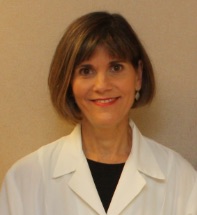Your Skin: Questions and Answers from an Expert
- Thursday, 29 September 2016 08:36
- Last Updated: Thursday, 29 September 2016 08:42
- Published: Thursday, 29 September 2016 08:36
- Joanne Wallenstein
- Hits: 11446
 Dermatologist Dr. Jennifer Goldwasser is one of Scarsdale's most sought after specialists. With an impressive resume, she's a recognized expert in her field who is both respected and well liked by her patients. Now at the Scarsdale Medical Group she's the go-to person for any questions or issues with skin – and because it seems like everyone has concerns, we decided to ask her some questions. Here is what she shared.
Dermatologist Dr. Jennifer Goldwasser is one of Scarsdale's most sought after specialists. With an impressive resume, she's a recognized expert in her field who is both respected and well liked by her patients. Now at the Scarsdale Medical Group she's the go-to person for any questions or issues with skin – and because it seems like everyone has concerns, we decided to ask her some questions. Here is what she shared.
Are skin cancers more common now or are doctors just better at diagnosing them?
I believe there is a true increase in the incidence of skin cancer, AND that more are coming to light, due to greater public awareness and due to more prevalent screening.
What are the signs that a skin patch could require treatment?
Non-melanoma skin cancers, like basal cell carcinoma and squamous cell carcinoma, can look rather innocent: a pink pimple, a crusty spot, or a scaly flat pink patch that persists for over 1 month should be evaluated. Melanoma skin cancers tend to be irregular in shape and multicolored.
New spots that do not resemble other spots on the body are suspicious, and a lesion that changes over time, in size, shape, or color, is suspicious. Lesions that itch or hurt or bleed should be evaluated. Any persistent spot on the nose after the age of forty should be reported.
What are the most common types of skin cancers?
Basal cell carcinoma is the most common, followed by squamous cell carcinoma, followed by melanoma.
How do doctors usually treat basel and squamous cell carcinomas?
These can be treated in a number of ways: burning and scraping them away, cutting them out, radiation therapy, and even topical creams can be used--it depends on the location, size, and other characteristics of the lesion and the patient.
If left untreated, will squamous and basal cell lesions spread or metastasize?
These two types of skin cancer rarely metastasize.
How can parents prevent kids from getting sun damage early on?
Follow the ABC's: Make sure your children AVOID midday sun, wear BLOCK, and COVER up with physical cover-ups and shade structures.
What can adults who already have damaged skin do to protect themselves?
Don't add insult to injury! Follow the ABC's and do quarterly self-examinations, and seek attention if you find a suspicious lesion. See your dermatologist regularly for a full body skin exam. Eat plenty of fruits, vegetables, whole grains, nuts, and seeds, and drink brewed teas, which are rich in antioxidants. Don't smoke--smoking increase your risk of squamous cell skin cancers.
Which sun blocks do you recommend and why?
I generally recommend water-resistant sunblocks with at least an SPF of 30. I prefer products that contain zinc oxide and or titanium dioxide as the active ingredients--these are PHYSICAL sunblocks (as opposed to chemical sunscreens). They work by reflecting light as soon as they are applied, and will continue to work until they are washed off by water or sweat, or rubbed off. Several manufacturers produce sunblocks that meet these criteria: Blue Lizard, Neutrogena PURESCREEN, Elta MD, and MD Solar Sciences are some examples.
Some vitamin D exposure is necessary for good health – how can people balance this need with the risk of skin cancer?
Each person has to make health decisions on an individual basis. If you have a personal or family history of skin cancer, and/or if you are very fair-skinned, taking sun to increase your vitamin D level may not be the best way to go for you. If you are not high risk for skin cancer and you have a low Vitamin D level, you might benefit from cautious sun exposure.
Dr. Goldwasser can be found at the Scarsdale Medical Group, 259 Heathcote Road, Scarsdale, NY 10583, Phone: 914-723-8100.














